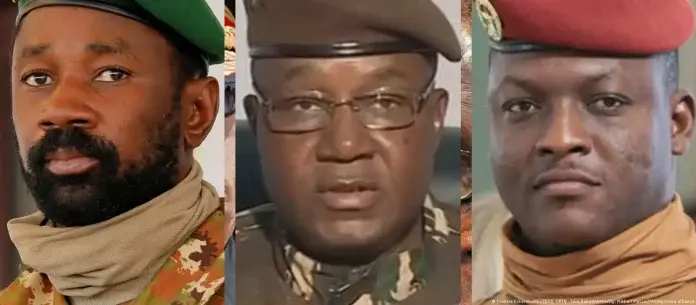- P.O. Box: 11482 Yaoundé, Cameroon; Headquarters: Efoulan, Yaoundé 3
- contact@caessinternational.org

Two Weeks After the Coup in Niger: Unwavering Support from Mali and Burkina Faso Amid Regional Reconfiguration
Two weeks after the military coup in Niger, the foreign ministers of Mali and Burkina Faso jointly addressed letters to the United Nations and the African Union, urging international organizations to assume their responsibilities by preventing any military intervention in Niger.
In their message, the representatives of Ouagadougou and Bamako drew a parallel with the 2011 Western intervention in Libya, which they argue “led to the collapse of the state and the destabilization of the Sahel.” It is important to recall that in an earlier joint communiqué, Burkina Faso and Mali warned that any military intervention in Niger aimed at restoring deposed president Mohamed Bazoum would be regarded “as a declaration of war” against both countries.
In this context, a report aired on Niger’s state television highlighted the joint support efforts of Mali and Burkina Faso, including the deployment of fighter jets within Nigerien territory. “Mali and Burkina Faso have backed their words with action by deploying warplanes to respond to any attack on Niger,” the report stated, specifying the use of Super Tucano fighter aircraft.
The unrest unfolding in West Africa since the July 26 coup reveals a deeper game of interests and geopolitical repositioning. In their letters to international organizations, the Malian and Burkinabè foreign ministers “reiterated their strong condemnation of any ECOWAS military intervention,” and, without naming any specific countries, warned that such an initiative “thinly veils the agendas of foreign powers eager to worsen an already fragile security situation.”
While both countries appear to be pointing a finger at France, their alliance in opposition to ECOWAS—widely perceived as being aligned with French interests—has piqued the curiosity of many observers. Their recent diplomatic rapprochement with Russia suggests an indirect confrontation between France and Russia. Russian flags seen among demonstrators in Niger, along with calls for the withdrawal of French troops, clearly indicate a rebalancing of geopolitical forces in West Africa.
As such, it is safe to say that ECOWAS is facing a critical juncture in its history. The outcome of this crisis is likely to reveal the contours of a new regional order and redefine the geopolitical dynamics in West Africa.